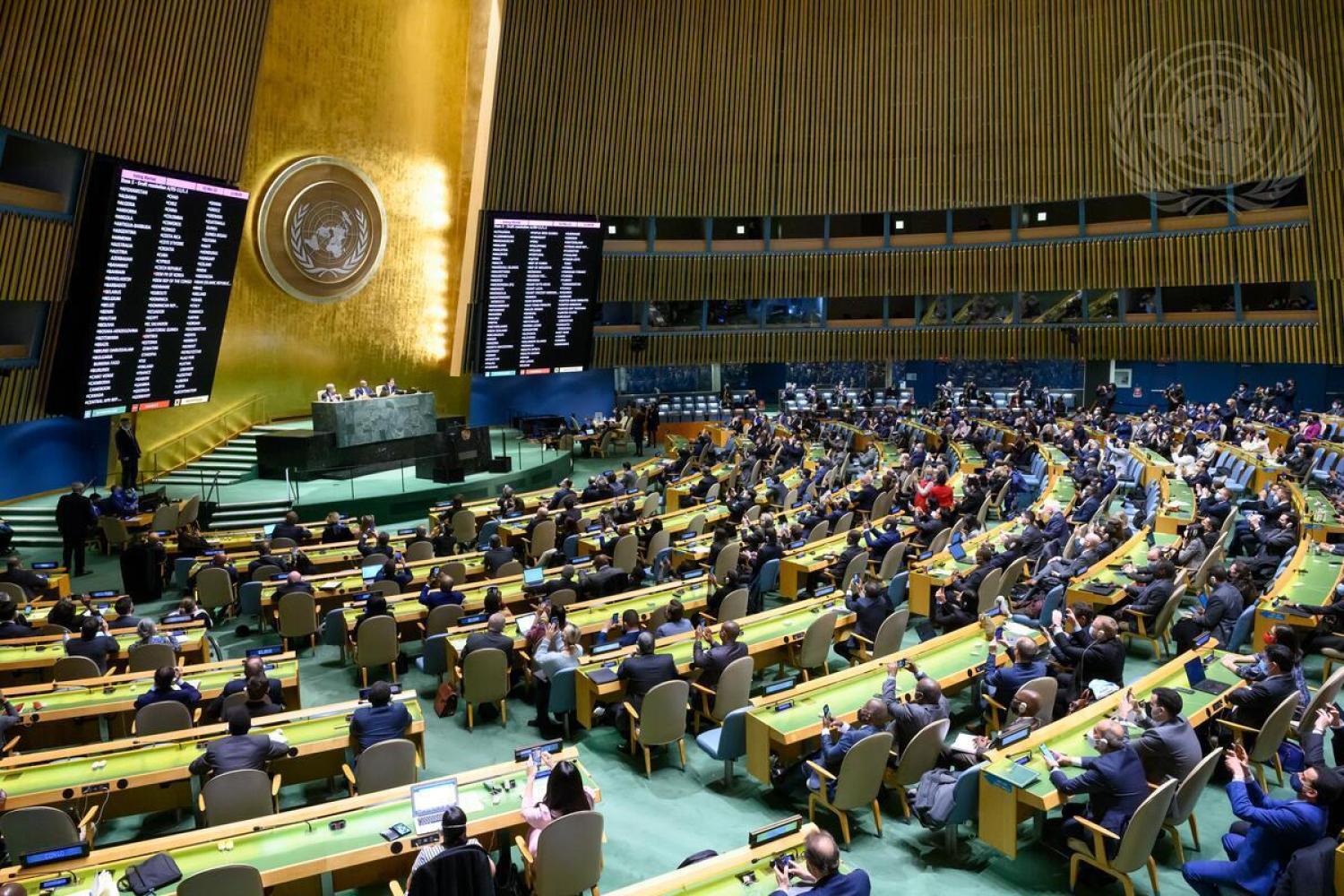Given all that is on the line right now in Ukraine, the persistence of the so-called “rules-based international order” is probably not high on the list of most people’s concerns. Nonetheless, this issue has surfaced as a matter of more-than-academic interest in recent days.
The latest obituaries for international order in the face of war in Ukraine have provoked impassioned responses, restatements, rejoinders and rallying-cries. Much of this debate has focused on either the weakness or resilience of international legal principles and institutions perceived to be at its core, such as the international legal prohibition on states using armed force against one another (absent United Nations authorisation or lawful claim to self-defence) and the UN that oversees that ban.
Three significant features of contemporary international order have, however, been side-stepped in most commentary to this point: first, its datafication and financialisation over the past half-century – both salient in the current war; second, the pluralism and decentralisation of authority within it – pluralism in which Ukraine and Russia are both finding strategic footholds; and third, its continually unfolding makeup and capacity for change.
Military hardware being deployed in and dispatched to Ukraine has understandably been the focus of recent concern. But this is also a software war. It showcases how much international ordering and law enforcement is now mediated by ICT infrastructure. National governments could only contemplate adopting the tailored sanctions that they have levelled against Russian elites and firms because sanctions compliance infrastructure has become globally ubiquitous. Personalised sanctions depend on powerful database management and algorithmic screening capacities built into that infrastructure.
International law and governance are not just continuing to operate in the current crisis – they are also exhibiting capacity for rapid change.
The ubiquity of digital technology is also key to one mode of self-help that the Ukrainian government is employing in response to Russia’s unlawful aggression (self-help having long been a recognised law-enforcement option in international law). The Ukrainian government has reportedly rallied hacker networks to “get involved in the cyber defence of [the] country”. The hacker collective Anonymous is among those groups that have responded, announcing itself on social media to be “officially in cyber war against the Russian government”.
The current war also underscores the extent to which international legal order has been financialised and unevenly so. The Society for Worldwide Interbank Financial Telecommunications (SWIFT) system – and by implication, the international law and policy infrastructure underpinning that system (including ISO 20022 and other international standards) – have been as much a focus of attention as the UN and its Charter. Likewise, efforts by Central Banks in Ukraine-allied countries to obstruct Russian access to foreign-held reserves depend on international financial cooperation having been embedded in law and policy worldwide and on the support of international financial institutions such as the Bank for International Settlements (BIS).
Both Ukraine and Russia are demonstrating awareness of this unequal decentralisation. Being disadvantaged militarily, the Ukrainian government and everyday Ukrainians have creatively engaged with a plurality of actors beyond states and with diverse governance regimes.
For example, the Ukrainian government has invoked the neutrality of the International Committee of the Red Cross by involving it in the repatriation of bodies of fallen Russia soldiers. Repatriating the dead and ensuring identification have long been a crucial part of the ICRC’s mandate in armed conflict that it can carry out thanks to its statutory commitment to neutrality. Involving the ICRC enables Ukraine’s government to support the veracity of its claims regarding loss of life in view of Russian reluctance to disclose the number of dead.
Ukraine and its allies have also sought to engage a broad range of private sector actors in the implementation of defensive measures and the pursuit of “hearts and minds”, including media and social media firms. A number of states have asked tech giants such as Google and Facebook (Meta) to help curb Russian disinformation. And European Union officials are now searching for legal avenues to implement a ban on Kremlin-backed media outlets Russia Today and Sputnik. However, the Kremlin is working this decentralised information order as well. For instance, the Russian communications regulator Rospotrebnadzor has imposed new obligations on Netflix, leveraging its investments in the Russian market. (Netflix has said it will not comply.)
International law and governance are not just continuing to operate in the current crisis – they are also exhibiting capacity for rapid change. Demonstrating unprecedented (seemingly racialised) political will to accept Ukrainians fleeing from war, the EU is ready to activate previously unused mechanisms on temporary protection that could grant Ukrainian refugees the right to remain in the EU states for up to three years. Similarly, there are calls to design an accelerated procedure for Ukraine’s potential accession to the EU – a prospect that was not even on the table for Ukraine before the invasion.
Whatever the “rules-based international order” looks like after this horrifying war, it will have been active throughout in more ways than are commonly acknowledged and will have shown itself more open to redistributive change than some would have had us believe. Authority, law and order are mediated by money, memes and megabytes on the international plane today – factors to which Russia and Ukraine are closely attuned.

